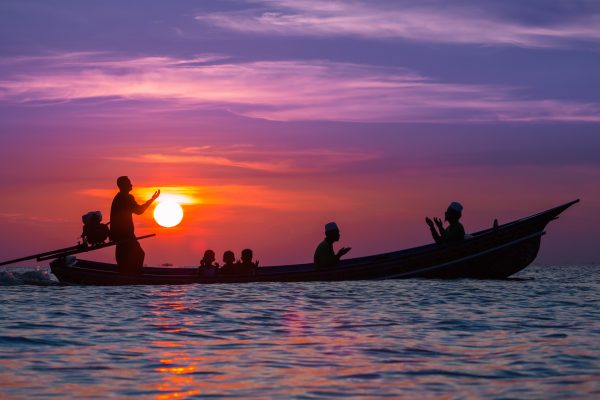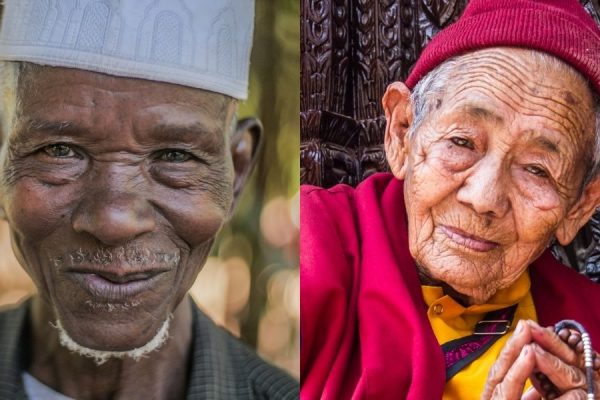The wind howled outside and sand pelted the side of the makeshift tent we were huddled in. I sat across from my new friend Hasan, a Muslim refugee who had recently fled unimaginable violence in search of a safe place to call home. But for now he wondered if he would ever leave this desert camp, or if it would someday become his grave.
I had arrived in the camp only a few days before, and as much as I would have liked to stroll in with the confidence and swagger of Angelina Jolie, I certainly had not. I was raised in a tiny Midwest town that many would say is in the middle of nowhere, and although my childhood was amazing, I rarely ventured out of the state and certainly not out of the country. A small town kid like me had no business crossing the ocean to meet with neighbors stuck in such desperate circumstances.
However, with the twists and turns of life, I found myself in a refugee camp a continent away from home feeling as apprehensive and incompetent as ever.
Hasan and I had met a few days before, and we had an almost immediate connection. I spoke a handful of words from his native language that quickly drew out his remarkable smile. I shared with him the little I had learned about his culture from a friend back home, and we quickly found a bridge of understanding.
This was my first time in a refugee camp and I learned very quickly that there isn’t much to do. So to pass the time, Hasan and I would spend hours talking about our families, politics, and religion. We’d even swap stories about our youth, and his stories would sometimes take unexpected turns.
Like the story he told me about his attempted suicide while imprisoned by an oppressive government. The torture the guards subjected him to had finally broken him, and one day he decided it would be better to end his life altogether. The details of this story were impossible for me to relate to, and almost impossible for me to even hear. I can’t imagine what it was like to live it like he had.
Hasan had left everything behind when he arrived at the camp. This upset him for many reasons, and one reason that impacted me deeply. You see, in Hasan’s culture, it is important to welcome new friends (like he now considered me) with a proper meal and some tea. But when I would visit Hasan, all he had to offer me was a bottle of water. His deep desire to show such hospitality toward me filled my heart with Joy, just before it was shattered when I understood the reality of what this meant.
Hasan was a refugee who had lost everything, he was barely surviving, and yet he was concerned that he couldn’t provide me a proper meal and a cup of tea. I was beginning to understand the meaning of loving your neighbors, and even enemies, in a whole new way.
From the beginning, Hasan and I knew my time in the camp was limited. On our last day together, Hasan penned a letter that changed how I live out the way of loving our neighbors even now, five years after we first met.
The letter he wrote was not to me; instead it was written to a friend of mine back home. This friend, Mohamed, was also a Muslim refugee originally from the same country as Hasan, and he was the one who had taught me the words I spoke to Hasan that first day.
In this letter, Hasan described me as his new best friend, and the purpose of the letter was to ask Mohamed and his wife to provide me a proper meal and tea when I returned home. Hasan felt so bad that he was unable to provide this to me in the camp that he was asking my friends if they would do it when I returned.
When I first learned the contents of the letter, I was shocked. Of all the things he could have written in that letter, he wrote about his concern for not properly hosting me in the refugee camp he was trying to survive in.
It has been five years since I met Hasan in that desert camp and I don’t know where he is today. Maybe he left the camp and was reunited with his wife and children. Maybe he tried to cross the nearby Mediterranean on a boat bound for Europe. Maybe he has resettled in a country through a refugee resettlement program. I don’t know.
What I do know, is Hasan gave me a new understanding of what it can look like to love our neighbors, and even our enemies. He also taught me how fortunate Americans are to have neighbors like him who have arrived through our refugee resettlement programs.
Neighbors who bring the same values and traditions, and who are making America great.





